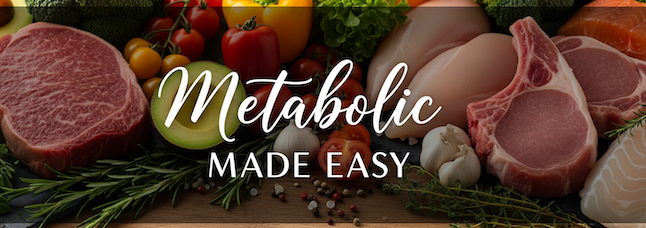Nutrition for Cancer Patients
Good nutrition is a vital part of cancer care. Eating well before, during, and after treatment can help you feel better, maintain strength, and recover faster. As the American Cancer Society notes, "Eating the right kinds of foods during and after treatment can help you feel better and stay stronger."
Why Nutrition Matters in Cancer Care
According to the National Cancer Institute, malnutrition affects 30%–85% of cancer patients and can increase treatment side effects, reduce quality of life, and even impact survival. Maintaining muscle mass and preventing unintentional weight loss are key goals.
Core Nutrition Strategies
| Strategy | Examples | Why It Matters |
|---|---|---|
| Prioritize Protein | Lean meats, fish, eggs, dairy, beans, nuts | Supports healing, immune function, and muscle maintenance |
| Eat Small, Frequent Meals | 5–6 smaller meals/snacks daily | Helps if appetite is low or energy is unstable |
| Stay Hydrated | Water, herbal teas, broths | Prevents dehydration, supports digestion and treatment tolerance |
| Focus on Nutrient Density | Colorful vegetables, fruits, whole grains, healthy fats | Maximizes vitamins, minerals, and antioxidants |
| Adapt to Side Effects | Soft foods for mouth sores, bland foods for nausea | Ensures nutrition continues despite treatment side effects |
Managing Appetite and Side Effects
The Mayo Clinic advises: "If you never seem to feel hungry, it's often helpful to eat according to a schedule rather than to rely on appetite." They also suggest creating a pleasant mealtime atmosphere and avoiding strong food odors if they trigger nausea.
Metabolic and Therapeutic Diet Approaches
Some patients explore metabolic strategies—such as low-carbohydrate or ketogenic diets—under medical supervision. These approaches aim to stabilize blood sugar and may influence tumor metabolism, but they should always be coordinated with your oncology and nutrition team.
| Dietary Approach | Key Features | Potential Benefits | Considerations |
|---|---|---|---|
| Mediterranean Diet | Rich in vegetables, fruits, olive oil, fish, whole grains | Supports heart health, reduces inflammation, long-term survivorship benefits | Moderate carbs; flexible for most patients |
| Ketogenic Diet | Very low carb, high fat, moderate protein | May stabilize blood sugar, target tumor metabolism | Requires strict monitoring; not suitable for all cancers |
| Plant-Forward Diet | Emphasis on vegetables, legumes, whole foods | High in fiber, antioxidants, and phytochemicals | May need protein planning |
| High-Protein Supportive Diet | Extra protein at each meal | Helps maintain muscle during treatment | Balance with kidney health if compromised |
| Intermittent Fasting / Time-Restricted Eating | Structured fasting windows | Emerging evidence for metabolic and immune benefits | Not safe for all; avoid if underweight or fatigued |
How to Choose the Right Approach
Different goals may call for different nutrition strategies. Use this quick guide to match your needs with a supportive diet approach. Always confirm with your oncology and nutrition team before making changes.
| Goal | Helpful Approaches | Notes |
|---|---|---|
| Maintain weight & muscle | High-Protein Supportive Diet, Omega-3–Rich Pattern | Ensure protein at every meal/snack; omega-3s may reduce inflammation and preserve lean mass. |
| Reduce nausea or mouth sores | High-Protein Smoothie Focus, Plant-Forward Soft Foods | Soft textures, mild flavors, and smoothies can make nutrition easier to tolerate. |
| Support energy & reduce fatigue | Mediterranean Diet, Balanced Plant-Forward | Colorful produce, whole grains, and healthy fats provide steady energy and micronutrients. |
| Manage blood sugar/insulin resistance | Ketogenic Diet (monitored), Lower-Carb Mediterranean | Close medical supervision needed; not recommended for all patients. |
| General long-term survivorship | Ketogenic Diet (monitored), Mediterranean Diet, Plant-Forward Diet | Strong evidence base for cancer prevention, heart health, and overall wellness. |
Patient Success Stories
"During chemo I lost my appetite, but working with a nutritionist helped me discover small, protein-rich meals I could actually tolerate. It made a huge difference in keeping my strength." – Sarah, breast cancer survivor
"Switching to a Mediterranean-style diet after treatment gave me more energy and helped me feel in control of my recovery." – David, prostate cancer survivor
"I worked with my oncology dietitian to try a modified low-carb approach. It wasn’t always easy, but I felt my blood sugar was more stable, and I had fewer crashes during radiation." – Maria, brain cancer patient
Food Safety During Treatment
Because cancer treatments can weaken the immune system, food safety is critical. The ACS recommends avoiding raw or undercooked meats, unpasteurized dairy, and unwashed produce to reduce infection risk.
When to Seek Professional Help
A registered dietitian—especially one with oncology experience—can tailor a plan to your needs, preferences, and treatment side effects. Bring a list of questions to your appointment and ask for clear explanations.
Trusted Resources
- American Cancer Society – Nutrition for People with Cancer
- National Cancer Institute – Nutrition in Cancer Care (PDQ)
- Mayo Clinic – How to Get Nutrition During Cancer Treatment
Quote from ACS: "Nutrition is an important part of cancer treatment. Eating the right kinds of foods during and after treatment can help you feel better and stay stronger."
